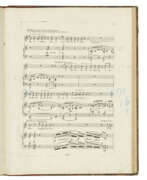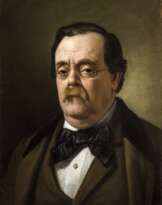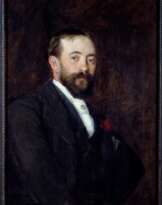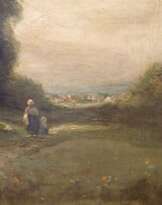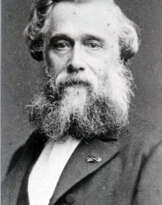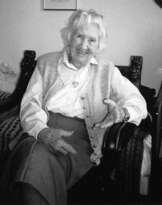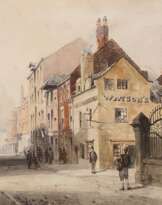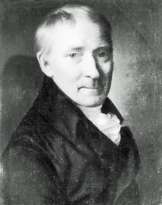Nikolai Rimskii-Korsakov (1844 - 1908)

Nikolai Rimskii-Korsakov
Nikolai Andreevich Rimskii-Korsakov (russian: Николай Андреевич Римский-Корсаков) was a Russian composer, teacher and conductor, music critic, and member of the Mighty Handful.
Originally from an old noble family, Rimskii-Korsakov studied piano from the age of six and by the age of nine was already trying to compose music. After graduating from the St. Petersburg Naval School, in 1862-1865 he was on a round-the-world voyage, during which he was made an officer. He participated in an expedition to the shores of North America, visited Great Britain, Spain, Norway. In 1873-1884 he worked as an inspector of military bands of the fleet.
During his studies at the school and during the expedition Nikolai Rimskii-Korsakov continued to study music. His acquaintance in 1861 with the composer Miliy Balakirev and his circle "The Mighty Handful", which included composers Caesar Cui, Modest Mussorgsky and Alexander Borodin, became the impetus for his work. Rimskii-Korsakov 's aesthetic views and worldview were formed under the influence of the "Mighty Handful" and its ideologist V. Stasov.
Nikolai Rimskii-Korsakov was very prolific, and almost all of his works are based on folk and classical Russian literature and melodies. He composed 15 operas, including The Pskovite Girl (1872), May Night (1879), The Snow Maiden (1881), Sadko (1896), The Tsar's Bride (1898), The Tale of Tsar Saltan (1900), Kashchey the Immortal (1902), The Tale of the Invisible City of Kitezh..." (1904), The Golden Cockerel (1907). Fragments from some operas have become the most performed in the world, among them "The Song of the Indian Guest" from "Sadko" and "The Flight of the Bumblebee" from "Saltan".
The composer's works also include three symphonies (the first of which he completed while sailing around the world), symphonic works, instrumental concertos, cantatas, chamber instrumental, vocal and sacred music. In 1886-1890 Rimskii-Korsakov conducted the "Russian Symphonic Concertos" in St. Petersburg, and in 1898 - in Moscow, at the same time he was also engaged in teaching. In 1871 he became a professor at the St. Petersburg Conservatory, where he taught classes in practical composition, instrumentation and orchestration.
As a teacher, Rimskii-Korsakov trained over 200 composers and musicians, including Alexander Glazunov, Mikhail Gnesin, Alexander Grechaninov, Anatoly Lyadov, Sergei Prokofiev, and Igor Stravinsky. He also published several textbooks on harmony and orchestration. Rimskii-Korsakov's work had a great influence on the development of Russian classical and foreign music.
| Date and place of birt: | 18 march 1844, Tikhvin, Russian Empire |
|---|---|
| Date and place of death: | 21 june 1908, Liubensk, Russian Empire |
| Period of activity: | XIX, XX century |
| Specialization: | Composer, Critic, Educator |
| Art style: | Romanticism |

